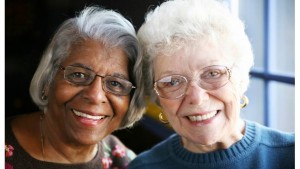Ageing in CALD communities should be government priority – ECCV
 The Victorian and Australian governments must make ageing in multicultural communities a top political priority, committing to a state that is inclusive of older migrants, according to the Ethnic Communities’ Council of Victoria.
The Victorian and Australian governments must make ageing in multicultural communities a top political priority, committing to a state that is inclusive of older migrants, according to the Ethnic Communities’ Council of Victoria.
The ECCV has launched a Multicultural Aged Care Strategy to inform Victorian political parties about effective ageing and aged care strategies directed at seniors from non-English speaking backgrounds and those from culturally, religious, and linguistically diverse communities.
The number of seniors from non-English speaking backgrounds is rapidly growing in Australia, particularly in Victoria, and service provision and funding allocations need to respond to this diversity, according to ECCV deputy chairperson Marion Lau OAM said.
“Our parents and grandparents deserve to have equitable access to ageing and aged care services,” Ms Lau said.
“Older people that migrated to Victoria from about 200 countries have significantly contributed to today’s economic and social prosperity. Seniors from non-English speaking backgrounds have a right to access services that respond to their cultural, linguistic, and spiritual preferences and needs.”
ECCV’s Multicultural Aged Care Strategy recommendations will help promote the contribution and participation of older migrants in an age-friendly, cohesive and equitable community.
“The strategy gives recommendations to enhance participation of seniors from non-English speaking backgrounds in community life and ensure equitable access to ageing and aged care services. The strategy is designed to assist decision makers in planning inclusive services, developing cultural diversity policies and enhancing their engagement with multicultural ageing populations,” Ms Lau said.
About a third of Victorians aged 65 and over and 33 per cent aged 75 to 84 are from non-English speaking backgrounds.
“A key recommendation requests that the Victorian and Federal Governments provide a framework that supports ethno-specific and multicultural services in building capacity in delivering culturally responsive services,” M Lau said.
Helen Matovu-Reed
AMES Staff Writer












